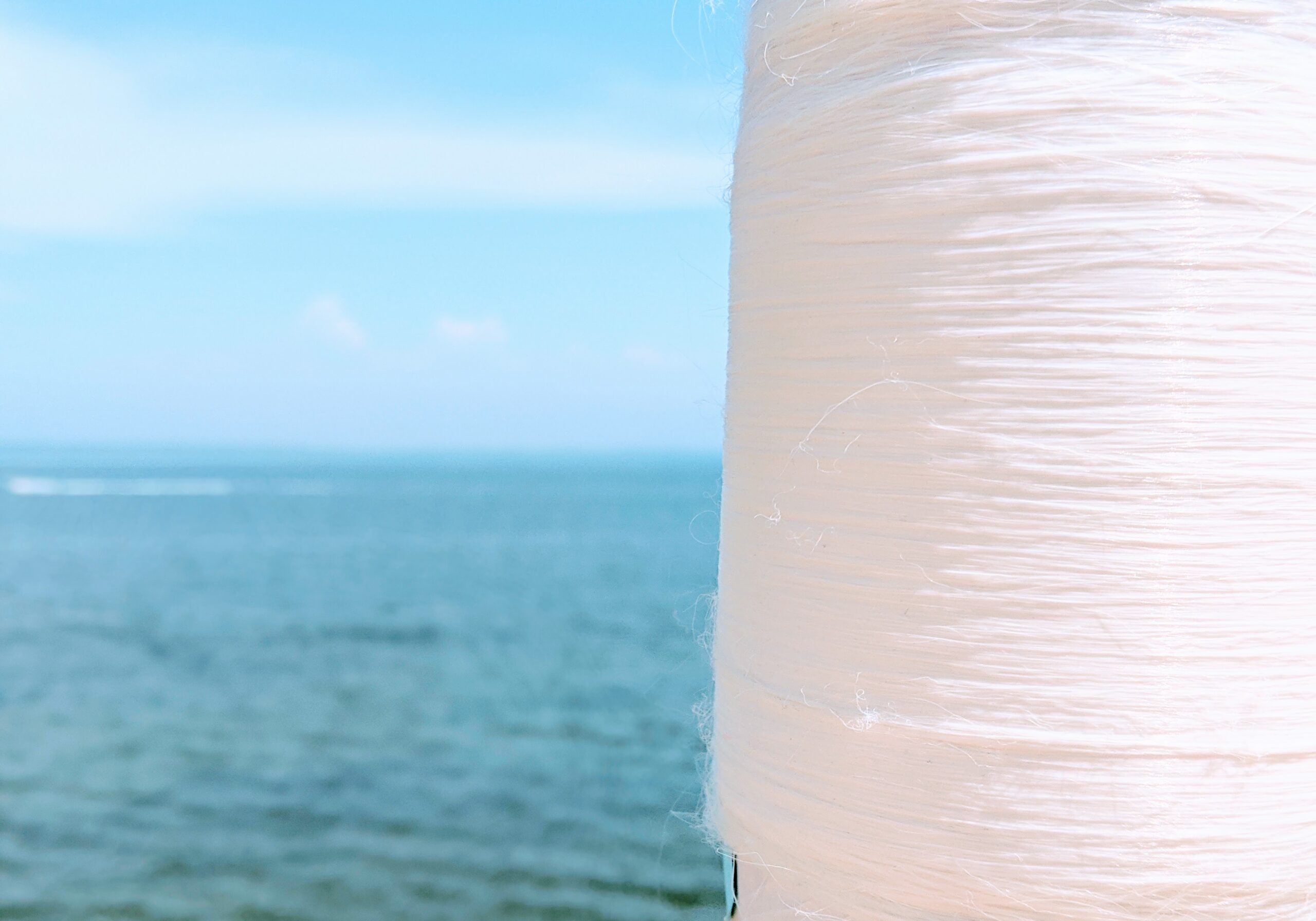
Kintra Fibers Project
Fashion for Good alumni, Kintra Fibres produces a biopolymer which is a replacement for virgin polyester. Polybutylene succinate or PBS is a biopolymer made using industrial sugarcane as a feedstock, it is also biodegradable in aerobic conditions.
Problem Statement
Polyester claims 52% of the global fibre market. As the most common fibre in the world, it also represents a significant portion of the 73% of textiles that are landfilled or incinerated annually. A synthetic fibre derived from petroleum, polyester does not naturally break down in the environment, and the production of virgin fibres also perpetuates our reliance on fossil fuels.
So the industry needs other solutions, including utilising alternative feedstocks such as textile waste or biobased feedstocks. Fibres made using biobased feedstocks are called biosynthetics. Biosynthetics include a range of different biopolymers such as PHA, PLA, PBS and Bio PET, which each have their own unique properties and are produced using techniques such as bacterial fermentation or converting starch to lactic acid through polymerisation.
Although there are partly biopolyesters that are available on the market, there are no 100% biopolymers at scale. Work is still needed to validate the performance of these biopolymers in fabric applications as well as to validate their end of use pathways such as industrial or home composting.
Executive Summary
Fashion for Good launched the pilot in April 2023 in collaboration with brand partners BESTSELLER, Inditex, Reformation and manufacturing partner Paradise Textiles. The aim of the pilot is to test, implement and scale Kintra Fibers’ polyester yarns and fabrics in the applications that the participating brand partners selected.
Kintra Fibers will provide Paradise Textiles with yarns which have been produced using their resin. From this, Paradise Textiles will create fabrics which will be dyed and finished. The hypothesis is that the fabric will meet the specifications outlined by the brand partners.
Alongside testing the technical feasibility the project also includes biodegradation studies and an environmental impact assessment. The biodegradation studies will be conducted on the final finished fabric with OWS, external testing partner. The environmental impact assessment will be conducted by a 3rd party consultant. Through this aiming to validate that the material is biodegradable in aerobic conditions.
Goals of the Project
-
Produce specified fabric made using Kintra Fibres resin, dye and finish the fabric that meets the specifications outlined by the brands
-
Conduct biodegradation tests on the finished fabric
-
Conduct 3rd party environmental impact assessment
-
-
Timeline
-
June-December 2022
Phase 0: Scoping
-
January- July 2023
Phase 1
-
January - December 2024
Phase 2
-
November 2024
Still in progress
Innovation Partners
Innovator
Relevant Resources
Other Projects

The Next Stride: Bio-based Materials for Footwear Soles
“The Next Stride: Bio-based Materials for Footwear Soles” aims to validate the performance and environmental impact of bio-based polymers as sustainable alternatives to the fossil fuel-derived materials currently used in footwear soles. The objective is to collectively de-risk the transition to these “next-generation” materials by rigorously testing their technical properties and assessing environmental benefits. Ultimately, the purpose is to accelerate the adoption of these bio-based solutions and pave the way for a more sustainable footwear industry.

Beyond50 Denim: Combining Cottonised Hemp And Green Chemistry
“Beyond50 Denim: Combining Cottonised Hemp And Green Chemistry” aims to validate the performance and environmental impact of cottonised hemp processed with green chemistry to act as a true alternative to cotton in denim applications. The project goal is to evaluate the performance of SEFF’s cottonised hemp fibre in combination with Fibre52’s bio-friendly chemistry solution within denim fabric applications with a total hemp content of 50% and above. The fabrics will be benchmarked against conventional 100% cotton denim with a specific focus on handfeel and aesthetic characteristics.

Price Parity Toolkit
The Price Parity Toolkit (PPT) was designed to help bridge the price gap between next-gen* and conventional materials. Developed by Fashion for Good with the support of Canopy, this industry-supported framework introduces a financing mechanism that decouples price premiums at early stages of the supply chain to enable adoption and drive the scale of lower-impact materials.









